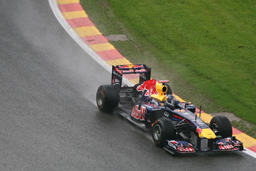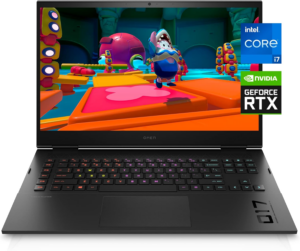While there will always be a distinction between traditional sports and esports, the two are becoming increasingly similar. The mental toll on gamers is frequently compared to the pressure that athletes face, while esports tournaments command massive global audiences that in some cases surpass the viewing figures of some of sport’s most hallowed competitions.

Many popular esports take place in environments far removed from traditional sports, such as League of Legends’ fictional world of Runeterra or the futuristic version of Earth that accommodates Overwatch battles. While these fantastical games were integral to building the popularity of esports, sport-themed gaming competitions have introduced the concept of esports to new audiences.
There was a stigma attached to esports when they first emerged into the public spotlight, with many deriding comparisons between gaming and sports. Now, huge audiences tune in to watch fans and celebrities go head-to-head on games like FIFA 20 and F1 2019. The latter feels particularly well-suited to the esport treatment, given that virtual racing competitions manage to recreate many of the key elements of real Formula One.
The star attractions
Part of F1’s appeal is having massive personalities line up on the grid for each race. Drivers like Lewis Hamilton and Charles Leclerc capture the imaginations of fans, both on and off the track. However, racing esports open up the grid to anyone with a console, whether that’s a dedicated gamer or a legendary retired driver. Having high-profile names competing with regular gamers makes events more illustrious, but it also helps to make stars of these gamers.
Torque Esports’ tournament, The Race All-Star Cup, has pitted some of the finest sim drivers against those with real-life racing experience. The star names of drivers like Jenson Button and Fernando Alonso might attract attention initially, but this provides a platform for audiences to appreciate the talents of the world’s finest virtual drivers. Last year we interviewed Ankit “V3nom” Panth here at digitalconqurer.com, who spoke of the importance of generating sponsorships as a pro gamer. A virtual driver who goes wheel-to-wheel with a racing great therefore gains crucial exposure to boost their career.
The fan experience
F1 differs from many other sports, where fans could conceivably travel around the country following their local side. You just hope that you’re able to get tickets to a single race when the F1 circus stops off in your country, with thousands of Indian fans lucky to see Sebastian Vettel show his skills as he won all three Indian Grand Prix between 2011 and 2013. However, most fans’ experience of F1 will be strictly televisual. While TV cannot compete with physically seeing (and hearing) F1 cars go by, this is a fan’s reality.
This means that the viewing experience doesn’t change massively when watching a real F1 race or a virtual event. Another similarity is the rise of esports betting options, something commonly associated with more traditional sports. Many of the sites ranked among India’s top bookmakers at asiabet.org now offer esports betting markets, which further blurs the line between real and virtual tournaments. Viewers can engage with racing esports by cheering on their favorites and betting on a winner, just as they would do with an F1 race.
The racing action
A motorsport purist might declare that racing esports can’t come close to recreating the tactical challenges faced by physical drivers, and their argument might have some validity. However, the disparity is much bigger in other sports. For example, a soccer video game cannot account for a footballer’s spontaneity and the massive range of possible in-game actions, so soccer esports feel fairly restrictive compared to the real thing.
In F1 this is less of a problem, where drivers have more fixed parameters about what they can and can’t do. This means that virtual racing games simply emphasize the core concept of the sport: going faster than your opponents. Anyone who loved the thrill of watching legendary drivers like Alonso and Button going head-to-head in real F1 may, therefore, find similar enjoyment in watching their virtual counterparts do battle.
Esports are in the slipstream of their more traditional counterparts, but could these virtual games one day overtake more conventional sports in terms of their popularity? The involvement of star names and an increasingly similar fan experience have shown that virtual motorsports can potentially provide just as much entertainment as traditional racing.
















